#WINDRUSH
Explore tagged Tumblr posts
Text

Young teenage boy who, just arrived from Jamaica, shows off his latest reggae dance with his younger brother watching, Brixton Hill. 1968
Ph: Neil Kenlock
#Brixton#United Kingdom#London#England#Jamaican#Youth#African Descent#African Diaspora#Culture#History#Windrush#Raggae
37 notes
·
View notes
Text

#black british#black britain#black history month#windrush#alford gardner#pioneer#1948#caribbean#windrush generation#rip#empire windrush
13 notes
·
View notes
Text
Seeing all these Windrush celebrations in the UK is bittersweet in so many ways given the backdrop. We have a tory government that is; explicitly anti-immigrant; has hijacked the word 'woke' to use as a pejorative against progressivism; demonises all attempts to include the histories and perspectives of those of us who aren't white British; is quite content to manipulatively use far-right talking points about the 'forgotten white white working class' when it suits them (despite the fact that tories are in fact a major part of the self-same political establishment who 'forgot' the white working class...)
This same month that we celebrate Windrush, we commemorate those who died in Grenfell, and those who have died at sea as they sought sanctuary and family reunion in the UK
Meanwhile, Braverman's has already reneged on the tory's promise to follow through on a set of recommendations made after the investigation into the Windrush scandal. Unsurprising, given just how keen she is to send asylum seekers off to Rwanda, and arrest anyone who protests. Not to mention the fact that the Home Office is still dragging its feet on paying compensation to the victims of the Home Office's cruelty
There's cognitive dissonance and then there's whatever the hell is going on in the minds of the government when they attempt to join in celebrating the contributions of postwar arrivals from the commonwealth
82 notes
·
View notes
Text

"They came with hope in their hearts and dreams in their eyes, building a bridge between nations and generations." - Anonymous
#art#artist#albert sackey art#life#journal#albertayebisackey#albertsackeyart#sketchbook#windrush#windrush generation#windrush foundation#heritage#generation#dreams#nation#nations#bridge#hope#journals of tumblr#journals of the world#scrapbook#motivation#inspiration#creativity#quotes#quote journals#hearts#heart#love#black british
8 notes
·
View notes
Text

Jean-Luc Picard @SpaceDadSupport Any authority figure that says you should not question them because they or their systems are infallible has immediately proven themselves wrong on both counts. 3:23 PM · Feb 3, 2024
#star trek#star trek the next generation#support#jean luc picard#captain picard#picard#affirmations#spacedad#kindness#what would picard do#star trek memes#star trek tng#question authority#horizon#ofsted#acab#windrush
12 notes
·
View notes
Text
The migrants from Britain’s colonies were often ex-servicemen who had fought for Britain in the second world war and, more importantly, subjects of the British empire. Through centuries of colonial rule and education, the cultural imaginary of Britain and Britishness was inculcated into each of the colonies. For better or worse, Britain was known as the ��motherland” and migration to the heart of the empire was not controversial. As subjects of the empire, these colonial migrants had every right to travel and settle in Britain. However, despite the need for labour, even before the Windrush docked, certain government officials were expressing concern about Caribbean migrants aboard another boat, the Ormonde, which had arrived in Liverpool in March of 1947. In one confidential telegram dated May 1 1947, from the governor of Jamaica to the secretary of state for the colonies in London, it’s clear that these “labourers” are not welcome: I should be most grateful for any guidance which you feel able to give me in this matter. You may consider that it would be sufficient for the moment to issue a public statement here warning Jamaican labourers not to proceed to the United Kingdom on the ground that employment cannot readily be found for them. [However] the proposal to employ Italian or Polish labour in Great Britain has received wide publicity here, and such a public statement issued on the authority of His Majesty’s Government is [therefore] likely to give rise to political criticism. This request for guidance is merely a public relations issue. The hypocrisy evident in confidential telegrams such as this mark the contradiction between the legal rights of these migrants and their social acceptance into the British workforce. The government was, at the time, creating programmes like the European Voluntary Worker (EVW) scheme, which would enable displaced, primarily, Eastern European migrants to fill the labour shortage in the country (such as the Polish labour mentioned in the telegram). Yet, the government was also simultaneously discouraging British subjects in the Caribbean from filling those gaps. Put simply: here we see an early example of what would become the Windrush scandal, where the rights of British colonial subjects are severely undermined. This is a story about British imperial history that has long been neglected and which has only recently received mainstream media attention through the work of historians such as David Olusoga.
53 notes
·
View notes
Text
Windrush: Hundreds with chronic and mental illness sent back to Caribbean - BBC News



A belated Windrush day ( 22 June)
30 notes
·
View notes
Text
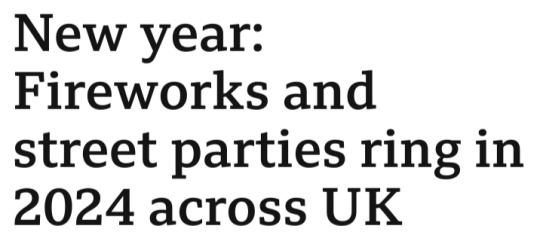
1 January 2024
By Doug Faulkner, BBC News
The UK marked the beginning of 2024 with fireworks, street parties, and a message of inclusivity as people celebrated across Britain.
As Big Ben struck, midnight drones lit up the London sky with the message "London, a place for everyone," before a vibrant firework display began.
About 100,000 people gathered to watch the 15-minute spectacular in the city.
In Scotland, Britpop band Pulp performed as thousands braved the cold to mark Hogmanay.
There was also a fireworks display as Edinburgh marked its 30th year of the celebrations, while there was a mass ceilidh staged in Inverness.
London's display included more than 12,000 fireworks, 600 drones, and 430 lights.
It quoted Shakespeare heard from the King and also paid homage to the NHS, which celebrated 75 years in 2023.
A quote from King Charles III was used to mark the 75th anniversary of the Windrush crossing in which he said new arrivals "collectively enrich the fabric of our national life."
Further messages throughout the show were heard from Mayor of London Sadiq Khan, Dame Helen Mirren, Bella Ramsey, Stephen Fry, Joanna Lumley, George the Poet, and Baroness Floella Benjamin, who read a poem by the late Benjamin Zephaniah.
The celebration continued with a New Year's Day parade, which started in Piccadilly at midday before making its way towards Westminster's Parliament Square.

Several days of weather warnings did not put off revellers in Scotland with tens of thousands watching Edinburgh's firework display.
Visitors from more than 80 countries gathered in the city, while Pulp headlined a concert in Princes Street Gardens.
Following the fireworks, thousands continued to celebrate, singing Auld Lang Syne, and dancing.
Inverness was host to the Red Hot Highland Fling, described by organisers as "one of the biggest ceilidhs on the planet," where folk singer Siobhan Miller entertained partygoers up to midnight.
Later, hundreds of hardy swimmers are expected to brave the waters of the Firth of Forth as part of the annual Loony Dook — dook being a Scots word for dip or bathe.
People are encouraged to don fancy dress for the charity swim.
In Allendale, Northumberland, the annual Allendale Tar Bar'l ceremony was held.
The centuries-old tradition sees 45 local men carry burning whiskey barrels through the town.
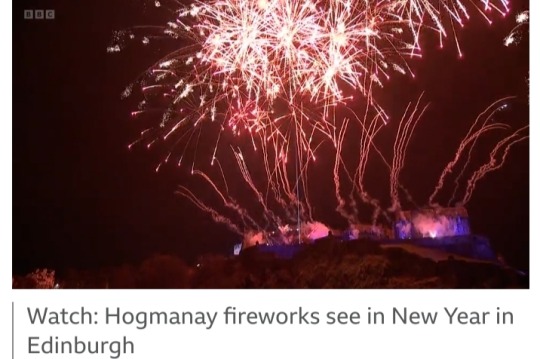

Before the celebrations, King Charles III and Queen Camilla waved to onlookers as they attended the New Year's Eve service at a church in Sandringham, Norfolk.
Ahead of giving his New Year message, the Archbishop of Canterbury urged politicians not to treat their opponents as enemies but as fellow human beings.
He told the BBC:
"Our capacity to disagree deeply and not destructively is cause for hope."
His message will be broadcast on BBC1 and iPlayer at 12:55 GMT.
In his New Year message, Prime Minister Rishi Sunak hinted at tax cuts in an election year and said the UK should "look forward with pride and optimism."
He said his resolution would be to "keep driving forward."
Labour leader Sir Keir Starmer used his message to say that while it had been "another tough year economically for millions of people, hope was the fuel of change."
Meanwhile, Sir Ed Davey, leader of the Liberal Democrats, renewed his party's call for electoral reform and appealed to "transform the nature of British politics for good."
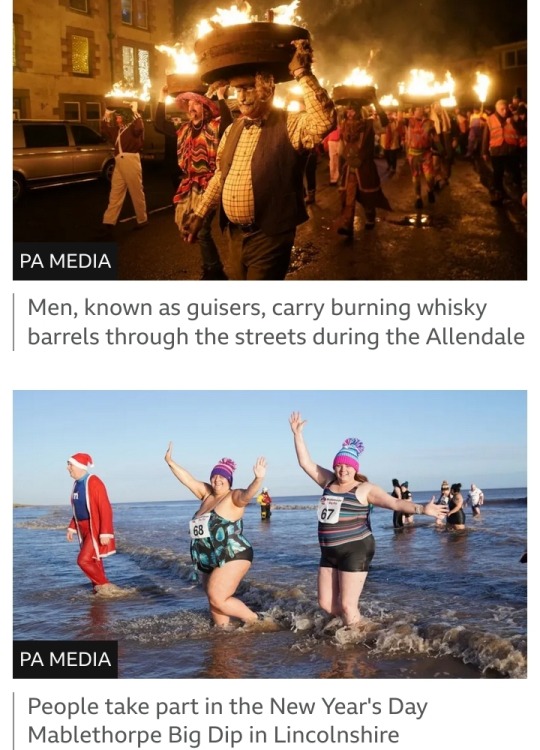
#Happy New Year 2024#Happy New Year#New Year 2024#New Year#UK#fireworks#light show#drones#street parties#Red Hot Highland Fling#Inverness#Edinburgh#Loony Dook#Allendale Tar Bar'l#Sir Keir Starmer#Sir Ed Davey#Windrush#Scotland#King Charles III#Queen Camilla#Big Ben#London Eye
10 notes
·
View notes
Photo
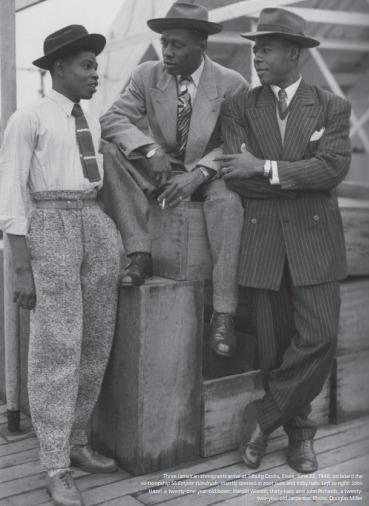
“Three Jamaican immigrants arrive at Tilburg[sic] Docks, Essex June 22, 1948, on board the ex-troopship SS Empire Windrush, smartly dressed in zoot suits and trilby hats. Left to right: John Hazel, a twenty-one-year-old boxer; Harold Wilmot, thirty-two; and John Richards, a twenty-two-year-old carpenter. Photo: Douglas Miller.”
Source: Michael McMillan - SAGA BWOYS AND RUDE BWOYS: MIGRATION, GROOMING, AND DANDYISM [Nka: Journal of of Contemporary African Art: Number 38-39, November 2016]
26 notes
·
View notes
Text
3 notes
·
View notes
Text

Lenford (Kwesi) Garrison (1943-2003) was an educationist and historian whose life's work was to catalogue the development of the Black British identity and its history and promote the works of young black writers. He was born in St. Thomas, Jamaica. His father and mother migrated to Britian in 1952 and 1953 respectively, and Len joined them there in West London in 1954.
24 notes
·
View notes
Text





Whitechapel, London (1964) by Ian Berry
#uk#60s london#london#england#united kingdom#british history#vintage#vintage photography#windrush#windrush generation
2 notes
·
View notes
Text
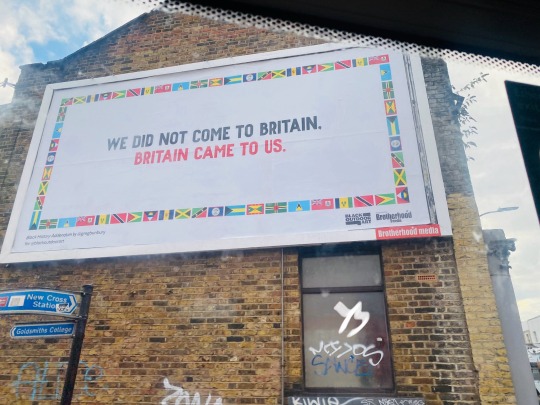
Immigration
#life is art#london#england#race riots#immigration#multiculturalism#hate preachers#false information#misinformation#gaslighting#love not hate#windrush#trillnoir#yamnbananas#art#photography#billboard#New Cross#streetphotography
2 notes
·
View notes
Text
ok this is cool
The new lines are:
Lioness: Euston to Watford Junction. Runs through Wembley, honouring the England women’s football team; yellow parallel lines on the map.
Mildmay: Stratford to Richmond/Clapham Junction. Runs through Dalston and honours the charitable hospital in Shoreditch’s pivotal role in the HIV/Aids crisis in the 1980s. Blue parallel lines on the map.
Windrush: Highbury & Islington to Clapham Junction/New Cross/Crystal Palace/West Croydon. Runs through areas with strong ties to Caribbean communities, honouring the Windrush generation. Red parallel lines on the map.
Weaver: Liverpool Street to Cheshunt/Enfield Town/Chingford. Travels through areas of London known for the textile trade, shaped by migrant communities. Maroon parallel lines on the map.
Suffragette: Gospel Oak to Barking Riverside. Honours the fight for votes for women, running to Barking, home of the longest-surviving suffragist, Annie Huggett, who died at 103. Green parallel lines on the map.
Liberty: Romford to Upminster. Referencing “the freedom that is a defining feature of London”, according to TfL, and the “historical independence of the people of Havering”, where it runs. Grey parallel lines on the map.
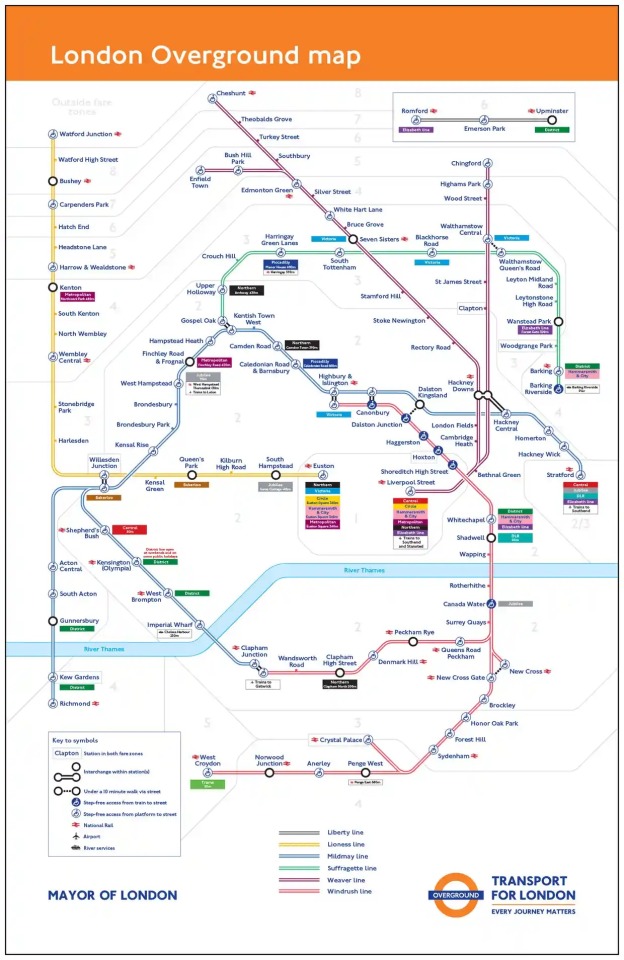
5 notes
·
View notes
Text
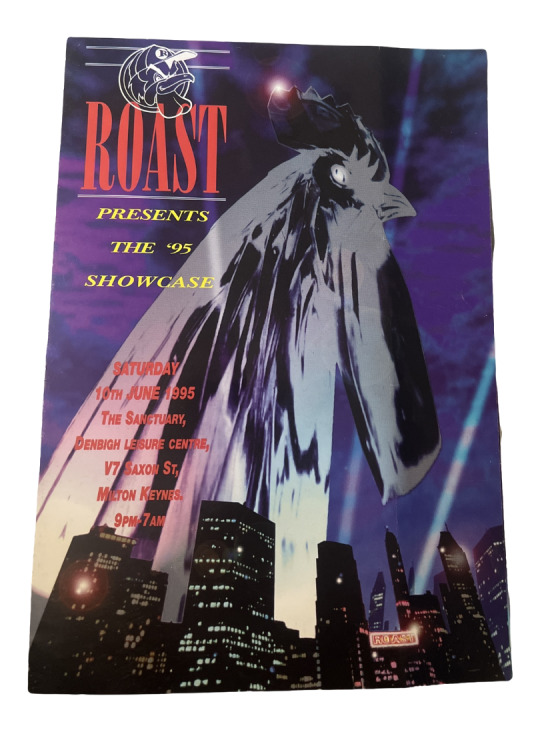


A flyer from 1995.
#jungle#junglist#90s#90s music#rave culture#black british#black history#history#british history#music history#music#vintage#immigration#windrush#lol
4 notes
·
View notes
Video
youtube
Kano - SYM (Later... With Jools Holland)
'Cause of the sweet colour of our skin They wan throw banana skins at John Barnsey's They tell us to go fuckin' back to our own country But they won't even give us back our own countries Every entrance to a door Has a footprint left by the ones that came before Let's talk about the day the wind was rushed up on the shore They promised us so much and then they left us to be poor Need superhero capes for the stuff our mum's had to endure Just heading to the store, no blacks, no Irish and no dogs The system's taking course and the most powerful are fraud They trap us in estates, won't even educate us boys And wonder why we break the law This ain't for the culture, it's for the connoisseur This ain't for the club, it's for the mandem on the curb They're tryna take away our art, how we supposed to earn? And express what's in our heart, I beg you
Suck your mother and dad
#kano#sym#later with jools holland#grime#top boy#sully#rappers who have something to say#windrush#music i love#live performance#best music show on the planet
8 notes
·
View notes